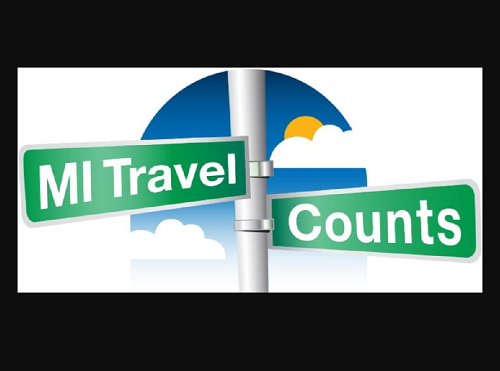The Michigan Department of Transportation has launched a statewide household travel survey, dubbed “MI Travel Counts,” to help the agency determine how travel behavior has changed over the past decade; helping the agency plan future changes and improvements to the state’s transportation system.
[Above photo by Michigan DOT]
Last conducted in 2015, the survey aims to help Michigan DOT planners account for the many changes in travel that have occurred, like the prevalence of remote work, the increase in online shopping, and greater use of ridesharing and delivery services. Data from the survey will also be used to plan out transportation infrastructure investments for the next 20 years, the agency added.
Michigan DOT noted in a statement that randomly selected households will receive an invitation to participate in the survey via U.S. mail and, upon accepting the invitation, household members will provide demographic data and then report their travel either via a smartphone application, the internet, or by telephone. The information provided to MI Travel Counts will be anonymized and aggregated to calculate statistics for study purposes, the agency added.
The agency added that the “MI Travel Counts” survey – conducted on its behalf by national research firm Resource Systems Group – will be conducted in three phases, with the first scheduled to run from April 15 through early June, with additional phases anticipated in spring 2025 and fall 2025.
Several other state departments of transportation are also in the midst of similar statewide travel survey efforts.
For example, in March, the Colorado Department of Transportation partnered with local and regional agencies across the state to conduct a “Colorado Travel Counts” household survey. The agency said insights gained from this survey – officially launched at end of February 2024 and slated wrap up in February 2025 – will help Colorado DOT and regional planning agencies prioritize local transportation projects, improve mobility, provide valuable transit services and reduce roadway congestion.
Households selected for participation will be offered up to $10 per person as compensation for the time and effort needed to join and complete the survey.
The survey results should help create a “snapshot” of how the transportation system is used statewide, Colorado DOT noted; enabling its planners to use that information as a foundation for future mobility planning and development efforts.

